Scroll charred in Mount Vesuvius eruption partially deciphered, earning researchers $700,000 prize
Machine learning has helped decipher part of an ancient carbonized scroll found in a villa that likely once belonged to Julius Caesar’s father-in-law.
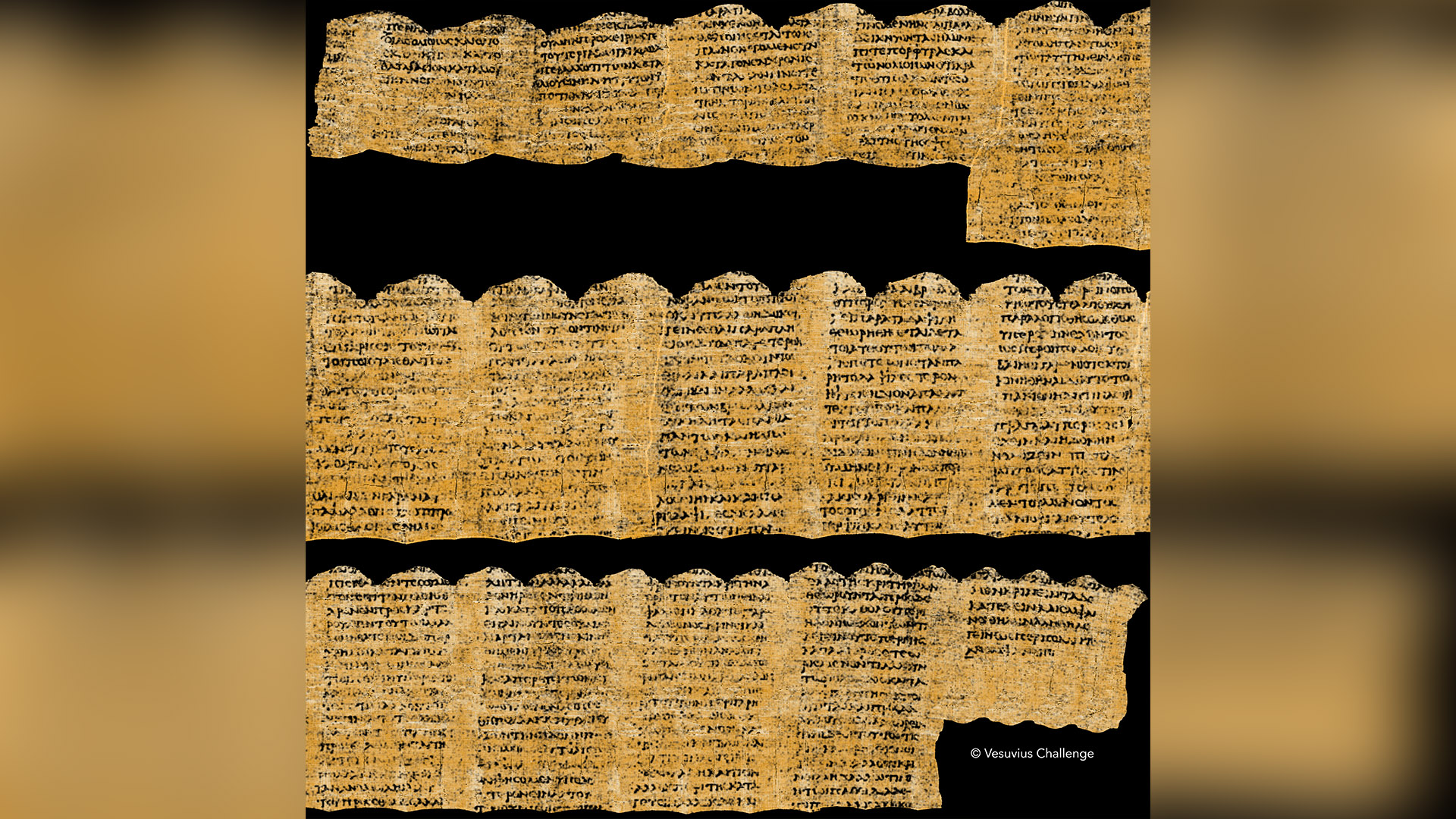
Part of a fragile papyrus scroll carbonized nearly 2,000 years ago in Mount Vesuvius' eruption has been virtually unrolled and almost completely deciphered with machine learning, earning the researchers responsible a $700,000 prize.
The text, written in ancient Greek, investigates pleasure from an Epicurean viewpoint, a philosophy whose ideal was pursuing pleasure in a life free from pain or fear. The virtual decipherment was accomplished by a team of three — Youssef Nader, Luke Farritor and Julian Schilliger — that recovered more than 2,000 characters, or about 5% of the scroll. They received the $700,000 prize on Monday (Feb. 5) for solving the Vesuvius Challenge.
The Vesuvius Challenge was initially announced in March 2023 by its founders, Brent Seales, a professor of computer science at the University of Kentucky; Nat Friedman, the former CEO of GitHub; and Daniel Gross, the co-founder of the search engine Cue. They were enthralled by the Herculaneum papyri, a collection of hundreds of papyri scrolls from the ancient Roman town of Herculaneum that were rapidly buried and carbonized in the aftermath of Mount Vesuvius' eruption in A.D. 79. In 1750, a farmer digging a well accidently found the remains of a villa that was likely owned by Julius Caesar's father-in-law, Bloomberg news reported. The villa held the remains of the carbonized scrolls, which crumbled in the hands of anyone who tried to unroll them.
But the ink on the papyri, however deformed, is still present. So, the challenge's founders asked people worldwide to use machine-learning to unveil the text. To get participants started, the founders borrowed scrolls from the Institut de France and imaged them at the Diamond Light Source particle accelerator in England. They, together with several institutions, then released X-ray tomography scans of several scrolls. They made software available to help participants virtually examine the artifacts, and offered more than $1 million in cash prizes provided by donors.
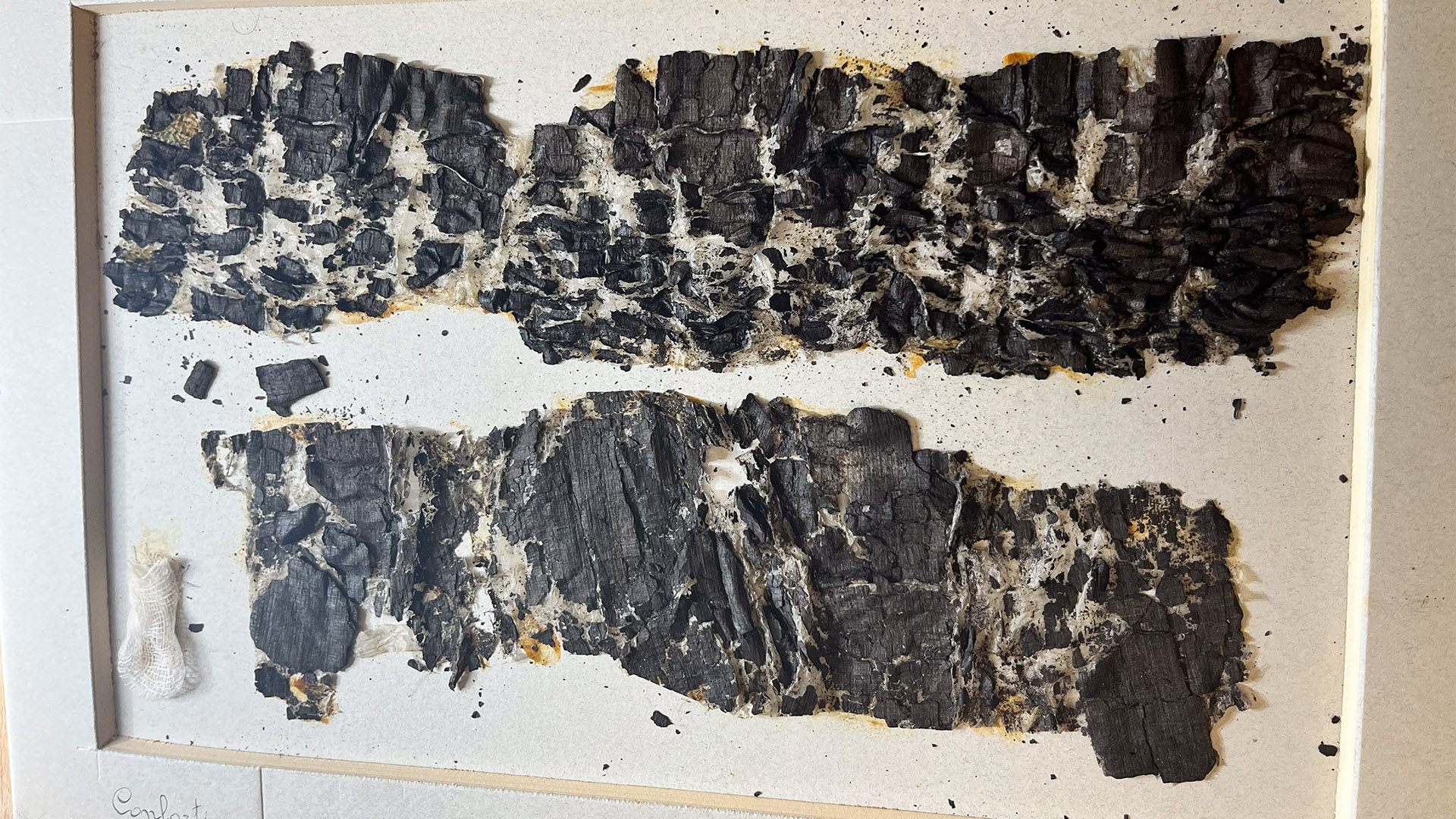
"In a way, it feels like building on my ancestors' innovative spirit from 5,000 years ago with their invention of Papyrus sheets," Nader, an Egyptian machine learning doctoral student at Free University of Berlin, said in a statement. "By bringing an ancient scroll back from the ashes, we continue to celebrate and document the incredible story of human ingenuity."
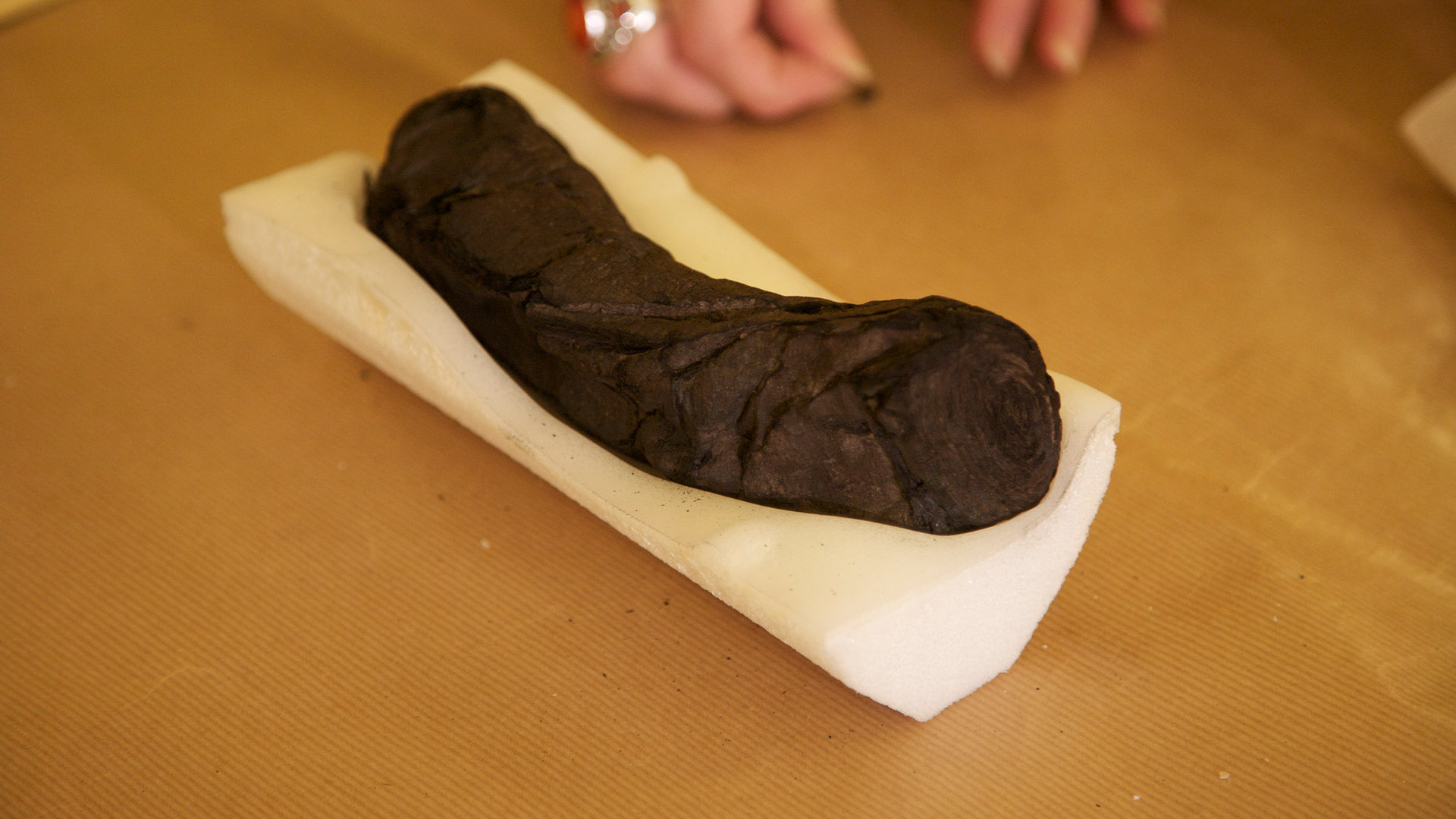
Nadar was the runner-up winner in the first part of the challenge, which was awarded in October 2023. In that feat, participants revealed just a few words of a scroll, including πορφύραc, which means "purple dye" or "clothes of purple."
Sign up for the Live Science daily newsletter now
Get the world’s most fascinating discoveries delivered straight to your inbox.
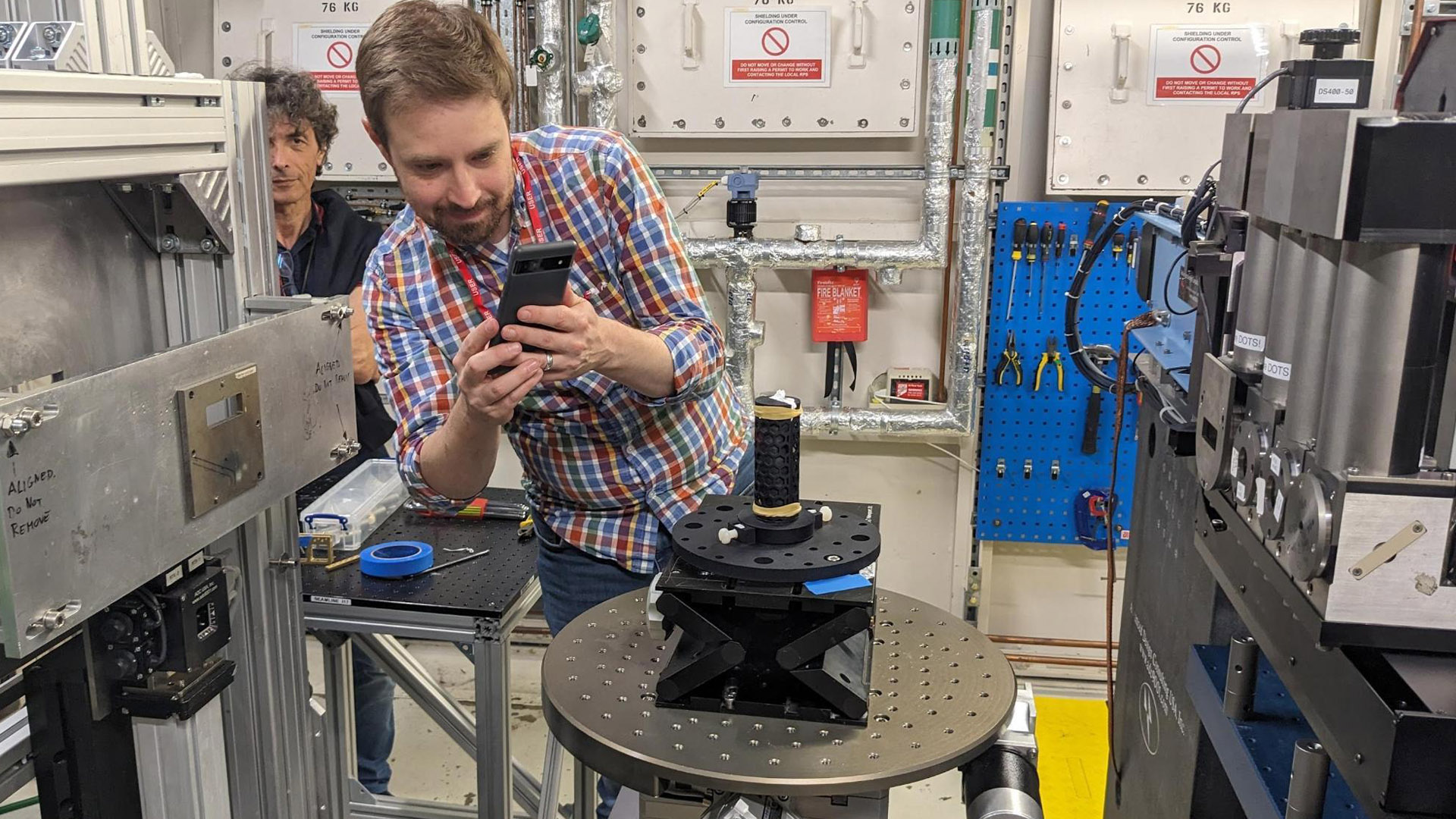
In the latest contest, participants had to reveal four passages of 140 characters each, with at least 85% of the characters deciphered, according to the challenge. The judges ensured accuracy in a few ways. Applicants had to provide their code so that judges could see if they got similar results; images among teams were compared, to ensure they were getting the same image; and the ink detection models were not based on Greek letters, which might lead the machine learning models to "hallucinate," or make up text. Instead, the models tracked dots of ink that were later aggregated as letters. These efforts revealed the Epicurean writings.
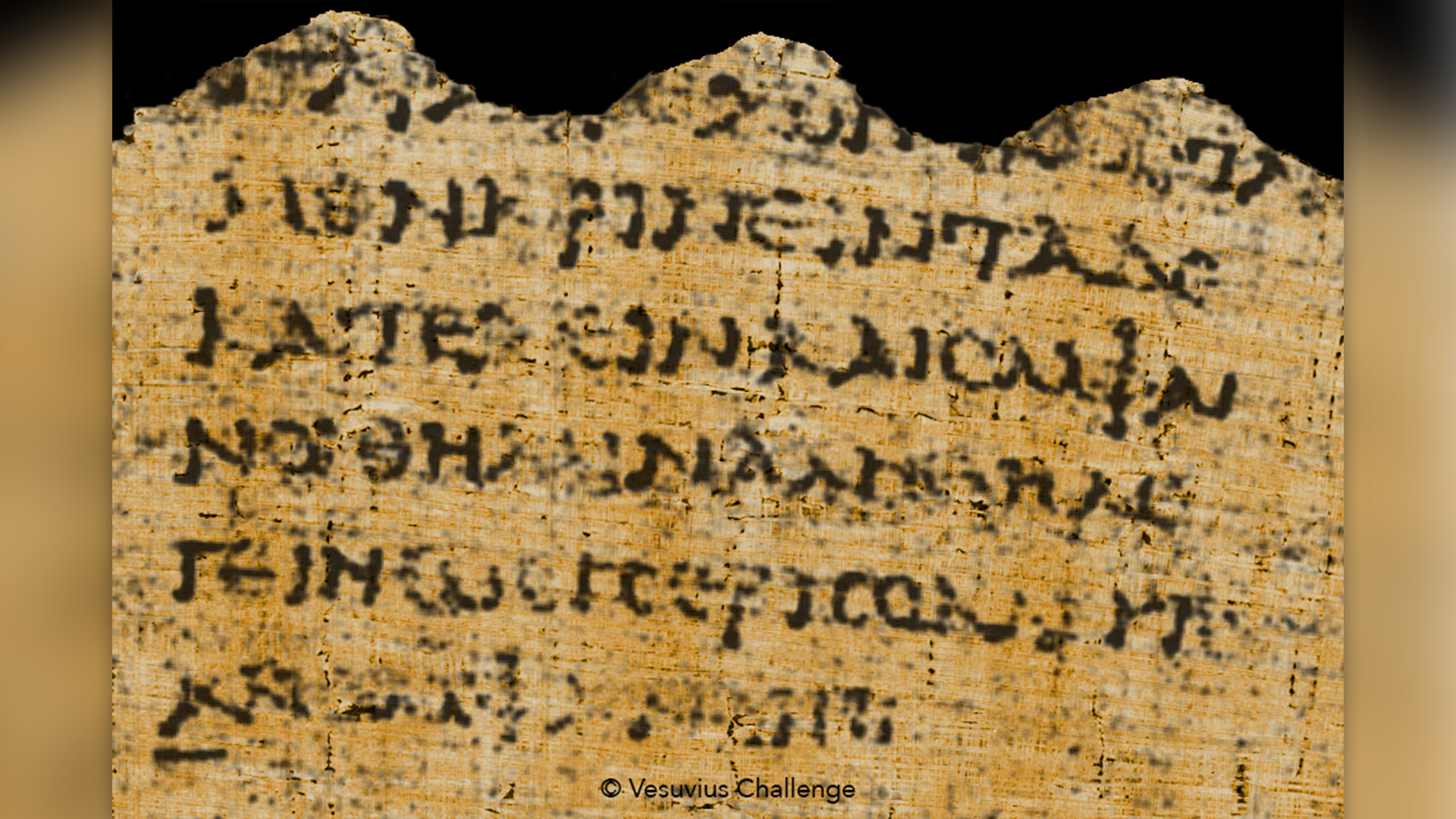
The ancient author, thought to be the Epicurean philosopher Philodemus (who lived from around 110 to 30 B.C.) writes about how scarcity or abundance of items can affect pleasure. For instance, do lesser quantities of things bring more pleasure than those that are in abundance? The author disagrees: "As too in the case of food, we do not right away believe things that are scarce to be absolutely more pleasant than those which are abundant."
"Is the author Epicurus' follower, the philosopher and poet Philodemus, the teacher of Vergil? It seems very likely," Richard Janko, a professor of classics at the University of Michigan, said in a statement. "Is he writing about the effect of music on the hearer, and comparing it to other pleasures like those of food and drink? Quite probably … So many questions! But improvements to the identification of the ink, which can be expected, will soon answer most of them."

Laura is the archaeology and Life's Little Mysteries editor at Live Science. She also reports on general science, including paleontology. Her work has appeared in The New York Times, Scholastic, Popular Science and Spectrum, a site on autism research. She has won multiple awards from the Society of Professional Journalists and the Washington Newspaper Publishers Association for her reporting at a weekly newspaper near Seattle. Laura holds a bachelor's degree in English literature and psychology from Washington University in St. Louis and a master's degree in science writing from NYU.










